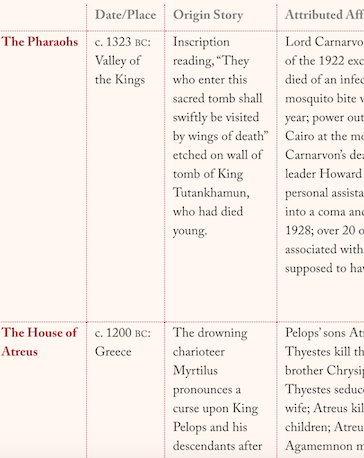Miscellany
In democratic Athens, writes classicist Victoria Wohl, “the communication between the law courts and the comic stage ran in both directions: each adopted language and themes from the other,” and plays “constituted a trial in which the theatrical audience was the jury. In this sense, comedy functioned as a kind of counter-jurisdiction, where issues of justice and social order could be debated and resolved, all with a wink and a giggle.”
Miscellany
According to Thucydides, before the plague of Athens, the Athenians were divided over whether the disaster predicted by an oracle would be a limos (famine) or a loimos (plague). “In the case of unwritten prophecies,” wrote one classicist, “it would be impossible to determine which word the speaker meant to use. The ambiguity of the sound would have been its chief recommendation to the soothsayer.”
Miscellany
Greek dramatist Aristophanes, in the 423 bc comedy The Clouds, coined the term rhaphanidosis, “the humiliating act of thrusting a radish up the anus as a punishment for adultery.”
Miscellany
After being tortured, an Athenian named Herostratus confessed to having set fire to the Temple of Artemis during the fourth century bc in order to attain long-lasting fame. Ephesian officials executed Herostratus and ordered his name removed from public record and never to be uttered again. Despite these injunctions—known as damnatio memoriae—Herostratus’ name appeared in the writings of Strabo and Theopompus. The term Herostratic fame thus refers to “fame gained at any cost.” “Herostratus lives that burned the Temple of Diana,” wrote Thomas Browne in 1658. “He is almost lost that built it.”
Pages


